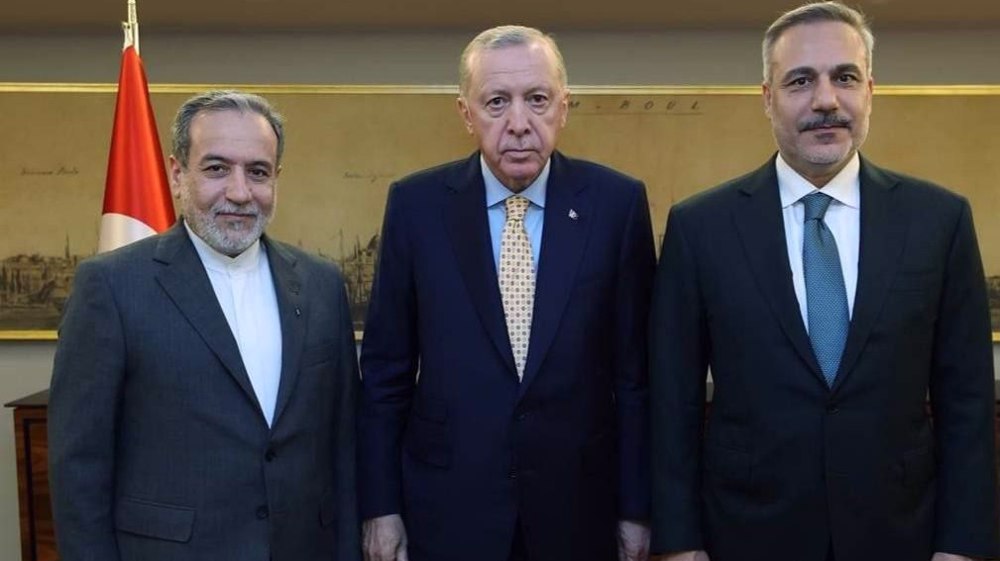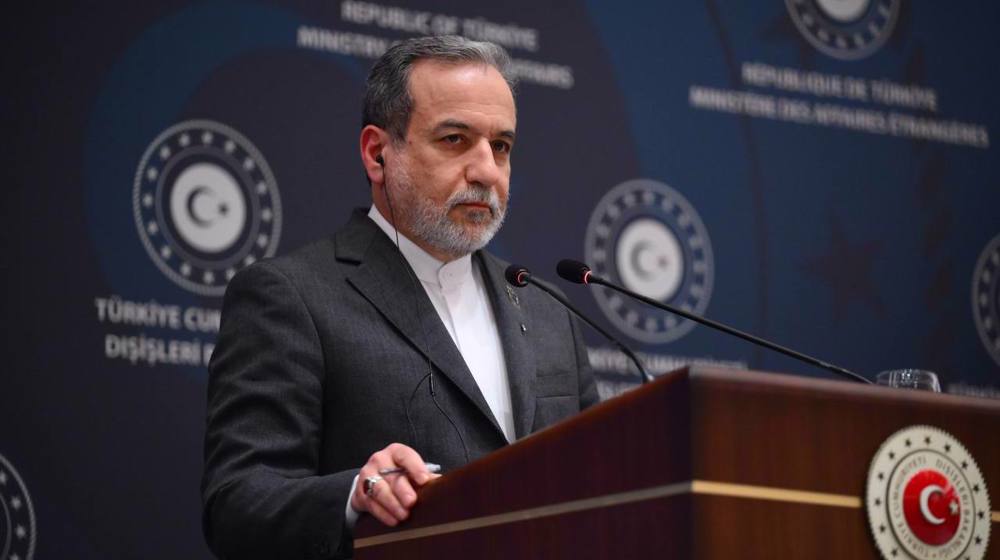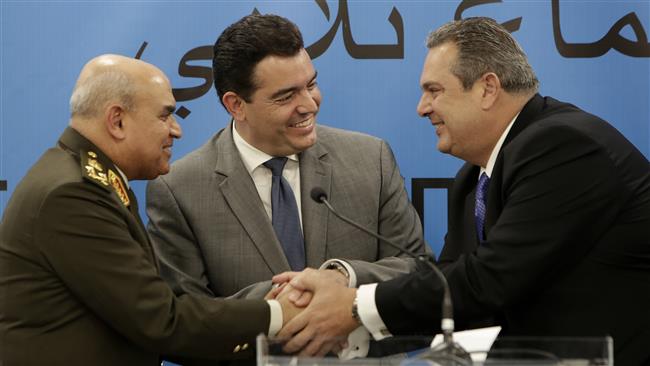Greece irate as Turkey, Libya enforce maritime, military accords
Turkey and Libya have begun implementing agreements on maritime boundaries and military cooperation, drawing an angry reaction from Greece which views the accords as a violation of its sovereign rights.
The pacts were signed by Ankara and Libya’s Tripoli-based Government of National Accord (GNA) last month and took effect over the weekend after receiving the approval of the Turkish parliament and the Libyan presidential council.
In an interview with state broadcaster TRT Haber on Monday, Turkish President Recep Tayyip Erdogan said the maritime deal with Libya — which maps out a boundary between the two countries in the energy-rich eastern Mediterranean close to the Greek island of Crete — was in line with international law.
The agreement, he added, allowed Turkey to carry out drilling on Libya’s continental shelf with Tripoli’s approval.
“With this new agreement between Turkey and Libya, we can hold joint exploration operations in these exclusive economic zones that we determined. There is no problem,” Erdogan said.
Under the deal, he noted, Greek Cyprus, Egypt, Greece and Israel need Turkey’s consent for establishing a gas transmission line in the region.
“Other international actors cannot carry out exploration operations in these areas Turkey drew (up) with this accord without getting permission. Greek Cyprus, Egypt, Greece and Israel cannot establish a gas transmission line without first getting permission from Turkey,” Erdogan said.
Turkish troop deployment to Libya
Erdogan further referred to another agreement signed between Turkey and Libya to expand security and military cooperation, saying it granted Ankara the right to deploy troops in Libya if the Tripoli government so asked.
“In the event of such a call coming, it is Turkey’s decision what kind of initiative it will take here. We will not seek the permission of anyone on this,” he said, stressing that such a move would not violate a United Nations arms embargo on Libya.
Libya-Turkey maritime pact infuriates Greece
The maritime deal has angered Greece, which slammed it as an “infringement on its sovereignty” that could complicate Athens’ decades-old disputes with Ankara over Cyprus and maritime rights in the Aegean Sea.
Athens gave Libyan Ambassador to Athens Mohamed Younis A.B. Menfi 72 hours to leave the country.
“It is with great sadness that I announce to you that this morning the Libyan Ambassador in Athens was called to the Ministry [of Foreign Affairs], where he was briefed about the decision to expel him,” Greek Foreign Minister Nikos Dendias said at a press conference.
“The decision to expel him is an expression of the dissatisfaction of the Greek government with the government in Tripoli. It was taken after the Libyan side did not respond to the conditions we had set,” Denidas added.
Erdogan denounced Greece’s decision to expel the Libyan envoy as an “international scandal” and warned that Athens would “pay the price for its actions internationally.”
EU sides with Greece, Cyprus
Speaking on Monday, EU foreign policy chief Josep Borrell said the Turkey-Libya maritime deal was “a cause of serious concern” and “problematic” for both Greece and Cyprus.
“We express our solidarity and our support to Greece and Cyprus,” he said after a meeting of the EU foreign ministers in Brussels.
Iran to hold 40th day commemoration for martyrs of terrorist riots
Lebanon’s parliament speaker urges pressure on Israel to stop ceasefire violations
UK government asked not to release Mandelson emails on Epstein: Report
VIDEO | Gaza Ramadan initiative
Hillary Clinton slams Trump for ‘betraying the West and NATO’
UN Staff group defends Francesca Albanese, condemns European ministers’ ‘vitriolic’ accusations
VIDEO | Full intelligence oversight maintained over Strait of Hormuz: IRGC Navy Commander
Sheikh Qassem: Hezbollah does not seek war, but will never surrender
















 This makes it easy to access the Press TV website
This makes it easy to access the Press TV website